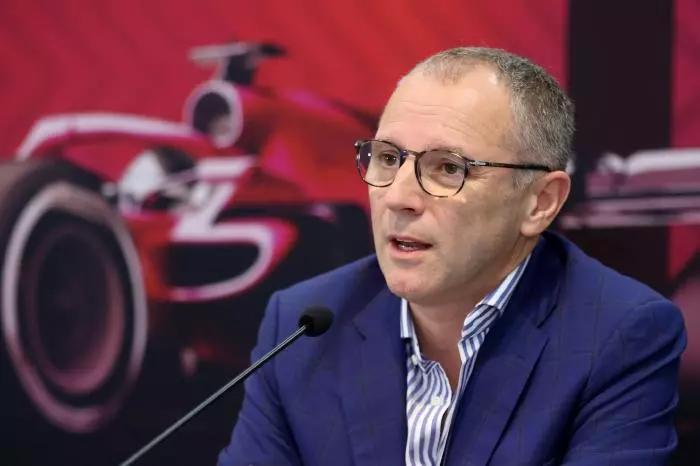Stefano Domenicali: Competing tyre suppliers not on F1 agenda

Formula 1 CEO Stefano Domenicali has affirmed that the inclusion of a tyre competition with multiple suppliers is not in the sport's future plans.
The most recent instance of tyre competition in F1 occurred between 2001 and 2006 when Michelin joined the fray to challenge Bridgestone, which had been the exclusive supplier for two seasons following Goodyear's departure.
Starting in 2007, Bridgestone took up the role of sole supplier for four seasons before Pirelli re-entered the sport in that capacity in 2011, ending a two-decade absence.
F1 has opted for a single supplier primarily due to cost considerations and the extensive testing demands that a tyre competition would inevitably entail.
Additionally, there's a consensus that utilising identical tyres across all teams promotes an even playing field and prevents teams under contractual obligations with a specific manufacturer from gaining an advantage.
In theory, with Pirelli's recently extended contract set to expire at the end of 2027 or 2028, contingent on the exercise of an option for the latter season, F1 could contemplate an alternative approach if there is interest from multiple companies.
Nevertheless, Domenicali has emphasised that without effective cost management solutions, there will be no inclination to entertain the notion of involving more than one tyre supplier.
"I think that point was taken together with the FIA to make sure that we were able to control the costs of the ecosystem of F1," Domenicali said of the arrangement with the sole tyre supplier.
"That was the main reason that we moved from the tyre competition, when we had a lot of testing, where we had a lot of mileage, and where there was a lot of research, that was really beneficial. But the cost was really massive.
"Therefore, that was the reason we moved from that direction into the new situation. It is too premature to consider that this could be a possibility for the future.
"In terms of an actual situation where the cost control is very relevant, I would say we haven't decided for sure, but it's not yet on the agenda to see if this could be a possibility in the future.
"But it's a point of relevancy, because in the future if you're able to control with different mechanisms, the cost, why not?
"But so far it's not on the agenda of the discussion together with the FIA, and with the teams."
READ MORE: Red Bull's Christian Horner urges Sergio Perez to step up ahead of 2024 Formula 1 season

